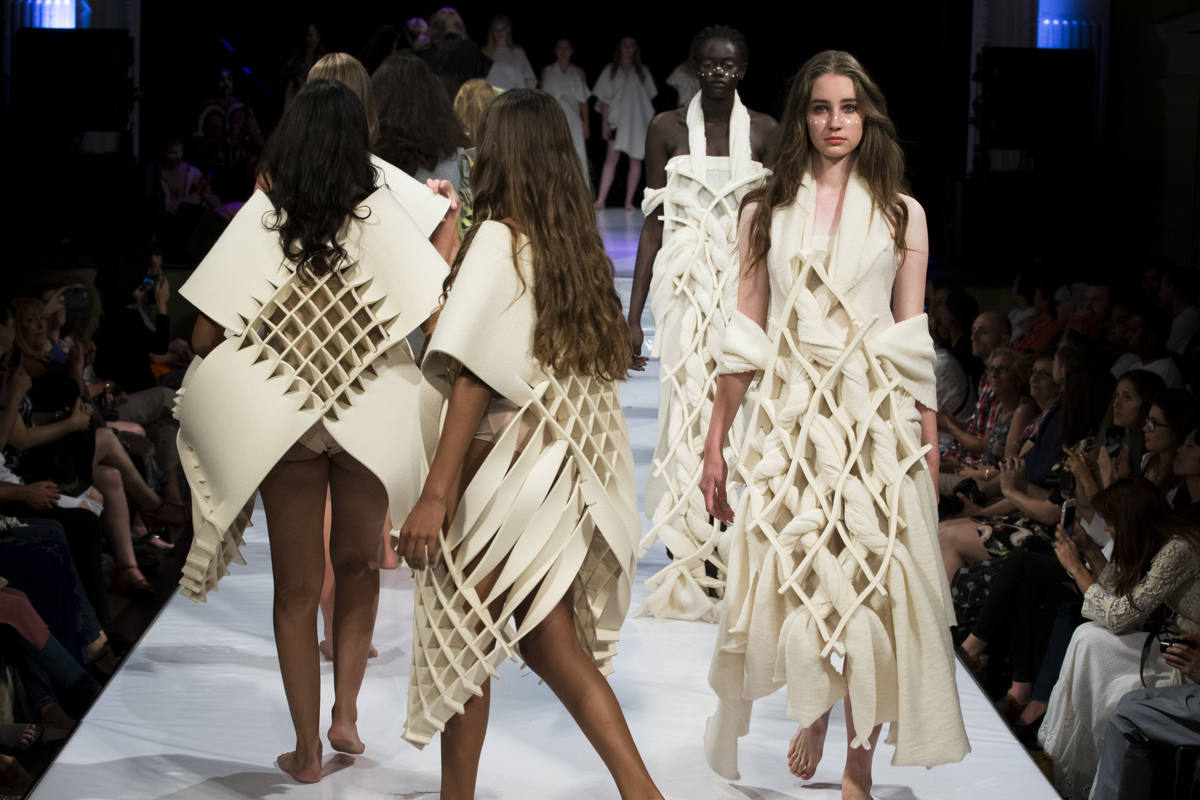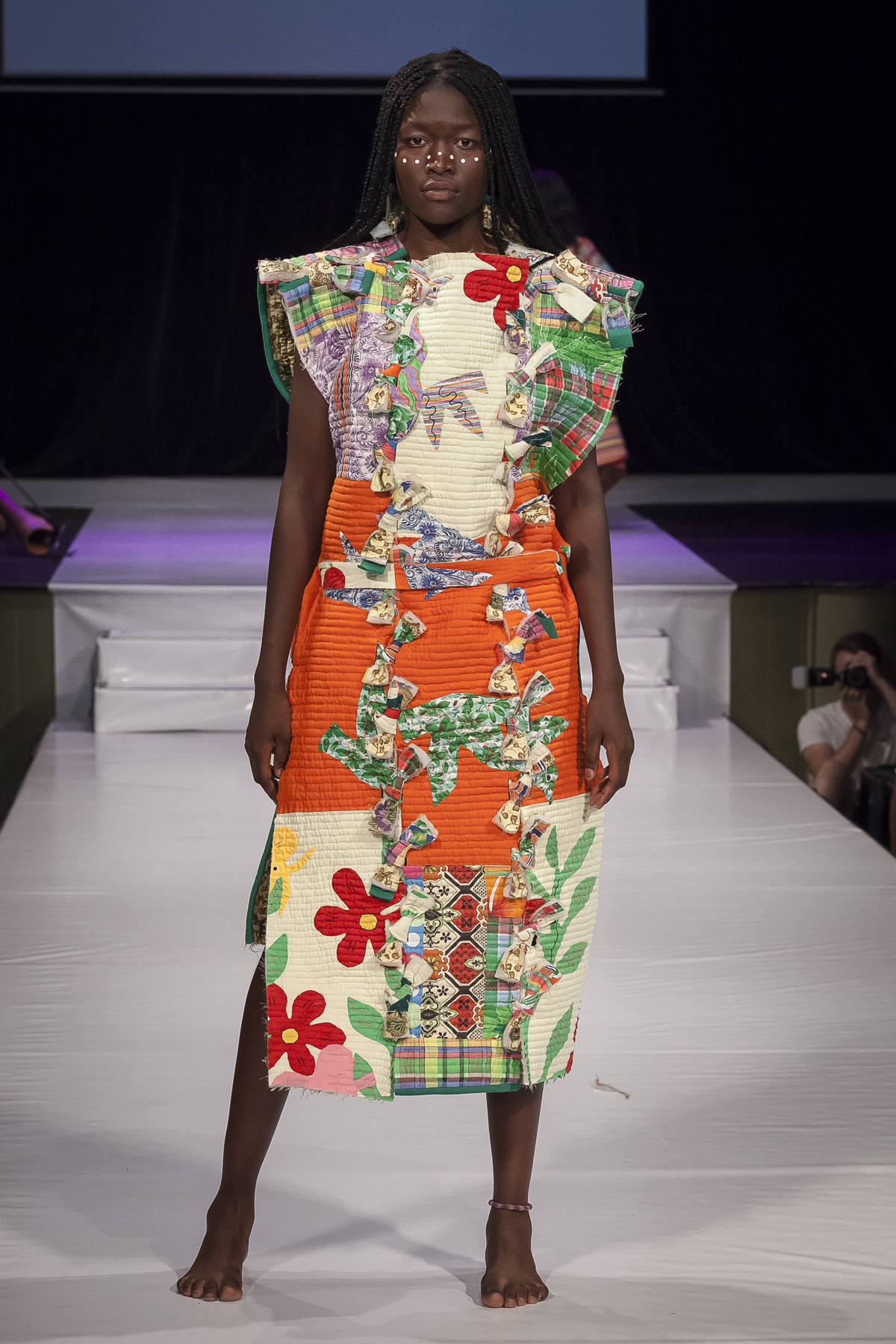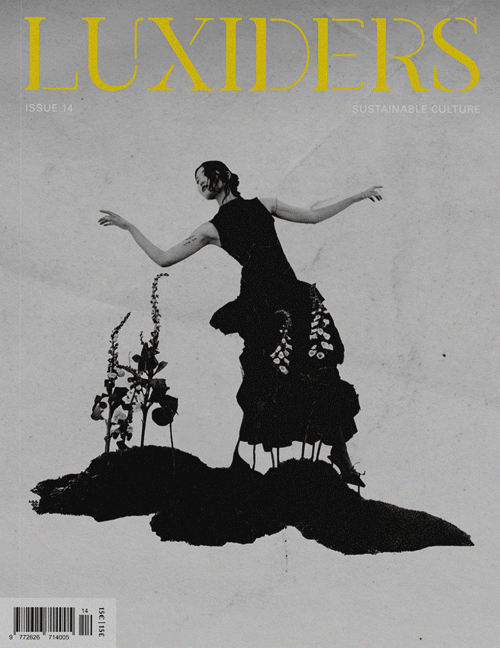
Studio Membrane, pure philosophy for a new eco fashion
Inspired by Timothy Morton’s way of thinking, Hiroaki Tanaka, Studio Membrane designer, suggests new relationships between clothing and the body. This young Japanese designer focuses on the experience of touching and reaching out to “the other person’s cognition” through product design. As staunch supporter of 0 Waste, he is now immersed in searching the possibilities of the “protein resin” applied to the garments. We couldn’t wait to get to know more about this work.
Hiroaki Tanaka, founder of the eco fashion brand Studio Membrane, was born in 1985 in Hokkaido, Japan and studied product design at Tama Art University in Tokyo. As Studio Membrane founder and designer, he did not really connect his activities with ecology until the start of 2017, when he met Zuhal Kuvan-Mills, organizer of Eco Fashion Week Austraria (EFWA). He was at Vancouver Fashion Week 2017. There, Zuhal told him that his work was ecological, and that really expanded his world and perspective.
Actually, Hiroaki Tanaka works as a contract employee at a University, promoting ICT education. Being a designer is really his side job: “I started doing it in 2015. I won the Semi Grand Prix at the Asia Awards 2015, a global competition for designers under the age of 30. As a result, I took part of Vancouver Fashion Week 2017 and EFWA 2017”.
“I would say that the worst of the current fashion world is the fashion industry and system, and the amount of waste that accompanies it. Nevertheless, the recycling system is a real challenge. It really is such a negative chain” .

Hiroaki Tanaka and his organic lifestyle
We have a look inside Hiroaki’s Wardrobe: “I have clothes that I have looked after very carefully for over a decade, for example, a wool poncho by Martin Margiela” – he explains us.
“How is your eco/ethic lifestyle?” – we ask him – “I find it difficult to immerse myself in a completely organic lifestyle. I would like to design an eco/ethical lifestyle of my own, keeping an appropriate balance with the contemporary urban consumption culture. My sustainable lifestyle is to keep questioning ecology. In other words, to contemplate it carefully and express myself through my creations”.
He recommends us to know about Timothy Morton‘s way of thinking. “I read “Why Ambient Poetics? Outline for a Depthless Ecology”, and I recently started reading his “Being Ecological”. He provides a new perspective, going beyond anthropocentrism. In order for us to design the future, we will need to examine the words of experts and think about ecology for ourselves, without being deceived by current trends and popular culture”.
“Should we pay attention to trends?” – he wonders. “I think that exploring and establishing ourselves is the only way to realize an authentic ecology. However, self-branding is a difficult thing. I think that, like art and music, we should deal with mental programs related to self-branding during our primary education”.
“In Sapporo City, where I live, there is something called
the “Sappachi Bee Project”. By breeding bees on the roof of city buildings, this project contributes to making the city greener and to create a community of volunteers.
That honey made from urban plants is also sweet and delicious”.





The philosopher of the new eco fashion
His last collection was Behind Useless Shape. With this collection, Hirokai focused on the idea of “the aesthetic beauty hidden in useless shape”. Cut. Assemble. Fasten. “Just by repeating this series of actions, clothes take shape. Unlike clothing that is made with patterns, you will find gaps between the cloth and the body; in other words, there is a void, or waste in this sense. However, there is no waste accumulated in the making of the clothing. In shaping waste, there is the beauty of nothing left behind. By fundamentally reviewing how to make clothes, I would like to suggest new relationships between clothing and the body”.
“I believe that it is essential for designers to collaborate with engineers and environmental ethics professionals for the future of an authentic, fundamental eco-fashion”.
The theme of Hiroaki Tanaka’s new work, to be announced at EFWA2018, is The Claws of Clothes: “I regard clothes as a kind of life form, and express the process by which clothes evolve while changing form. If garments are considered life forms, what are the claws of a piece of clothing? If clothing had claws, how would this change their state of existence?”.
This idea was brought about by Professor Shinji Hirai and his team at Muroran Institute of Technology, and their research into “protein resin”. By compressing wool cloth while applying heat to it, the keratin contained in the wool becomes a resin. (Keratin is the same protein in nails or claws.) This is an animal-derived resin, is not a petroleum-derived material and is biodegradable. This material has great potential. However, it’s very expensive to make products from it. That is why and they need financial assistance.
“I realize that, without expert advice, it is difficult to understand the concept of ‘ecology’ removed from the current trends, and to get accurate facts regarding ‘ecosystem’”.
To end our interview, we ask Hiroaki Tanaka about the names that, in his opinion, are great Super Heroes of the Sustainable World: “Firstly, Coco Chanel, who released women from the corset. Secondly, Issey Miyake, who demonstrated one arrival point for having garments wrapped around a body using beautiful technologies of the A-POC and pleats. These are both stories of the modernization of technological developments, but at the same time, I am inspired by different ethnic groups, including Aboriginal and Ainu People and their traditional costumes. Also, Ms. Zuhal from EFWA and Professor Shinji Hirai from Muroran Institute of Technology are great associates of mine in thinking about ecology.
“Have your own philosophy and borrow the expertise of engineering experts. You need to have the courage to renew your way of thinking in cooperation with different fields, while maintaining your own vision”.
+ info: Studio Membrane






